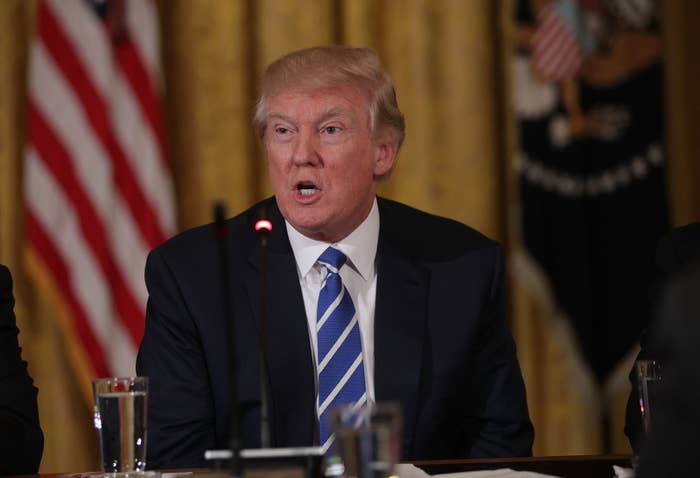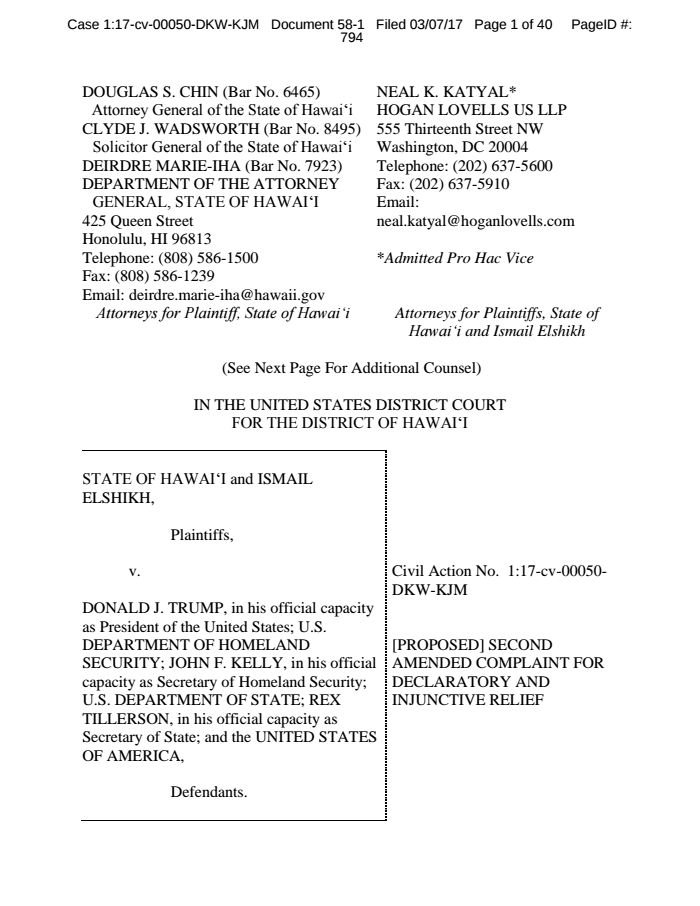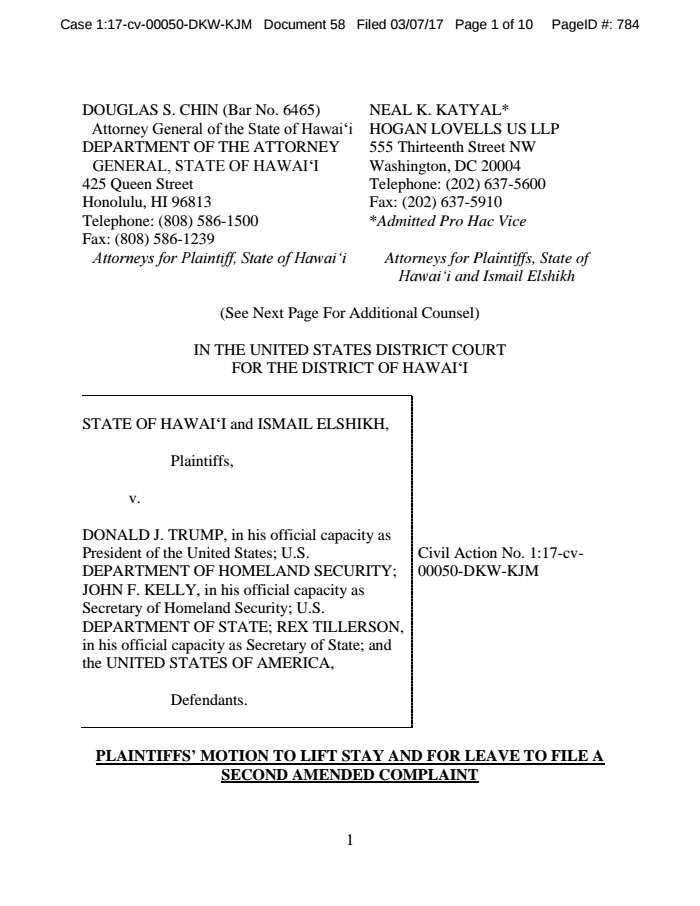
WASHINGTON — Hawaii is challenging President Donald Trump's new travel and refugee order, a move filed in federal court late Tuesday night.
Seeking to amend the lawsuit the state had filed challenging Trump's original ban, the lawyers received permission from the federal court hearing the lawsuit to amend their complaint and challenge the new order on Wednesday.
"This second Executive Order is infected with the same legal problems as the first Order — undermining bedrock constitutional and statutory guarantees," the lawyers write in the new challenge.
The lawyers for Hawaii told a federal court earlier Tuesday that they planned to file a challenge to the new executive order on Wednesday.
The proposed amended complaint in Hawaii v. Trump was filed late Tuesday night, however, along with a motion asking the court to resume the case — which had been put on hold — and allow the state to file the amended complaint. US District Judge Derrick Watson granted the requests on Wednesday.
The challenge is the first to Trump's new order, signed Monday.
The hearing on the state's motion for a temporary restraining order will be held at 9:30 a.m. local time (2:30 p.m. Eastern Time) on March 15 — less than 10 hours before the executive order is to take effect.
In addition to the state of Hawaii, represented by Hawaii attorney general Doug Chin, the lawsuit is brought on behalf of Ismail Elshikh, the imam of the Muslim Association of Hawaii.
"Given that the new Executive Order began life as a 'Muslim ban,'" Hawaii's lawyers write in the proposed amended complaint, "its implementation also means that the State will be forced to tolerate a policy that disfavors one religion and violates the Establishment Clauses of both the federal and state constitutions."
More broadly, the proposed amended complaint alleges that the new executive order violates the Immigration and Nationality Act, the Religious Freedom Restoration Act, and the Administrative Procedure Act, as well as constitutional provisions: the Establishment Clause and guarantees of equal protection and due process.
While other state officials who had challenged the original ban said on Monday that they would be taking time to review the new order before deciding their next moves, lawyers for Chin were in court Tuesday, announcing their next plans.
The case that Hawaii brought against the original ban was put on hold in the wake of the nationwide injunction issued in the case brought by Washington and Minnesota. The lawyers behind the Hawaii challenge — including former acting solicitor general Neal Katyal — first asked to end the stay on their case so they could bring the challenge to the new executive order. The initial Tuesday filing noted that the federal government consents to the move to end the stay.
According to the joint filing by the state and Justice Department lawyers, the department's response would be due on March 13 and Hawaii's reply would be filed the next day. Judge Watson agreed with the proposed schedule in an order filed on Wednesday.
Although the first challenge to the new ban, Hawaii's move is not the first announcement that one is coming. That was made by the Arab American Civil Rights League and others in an ongoing lawsuit pending in Michigan. That filing, however, only stated that a new challenge would be coming on the March 16 effective date of the new order.


